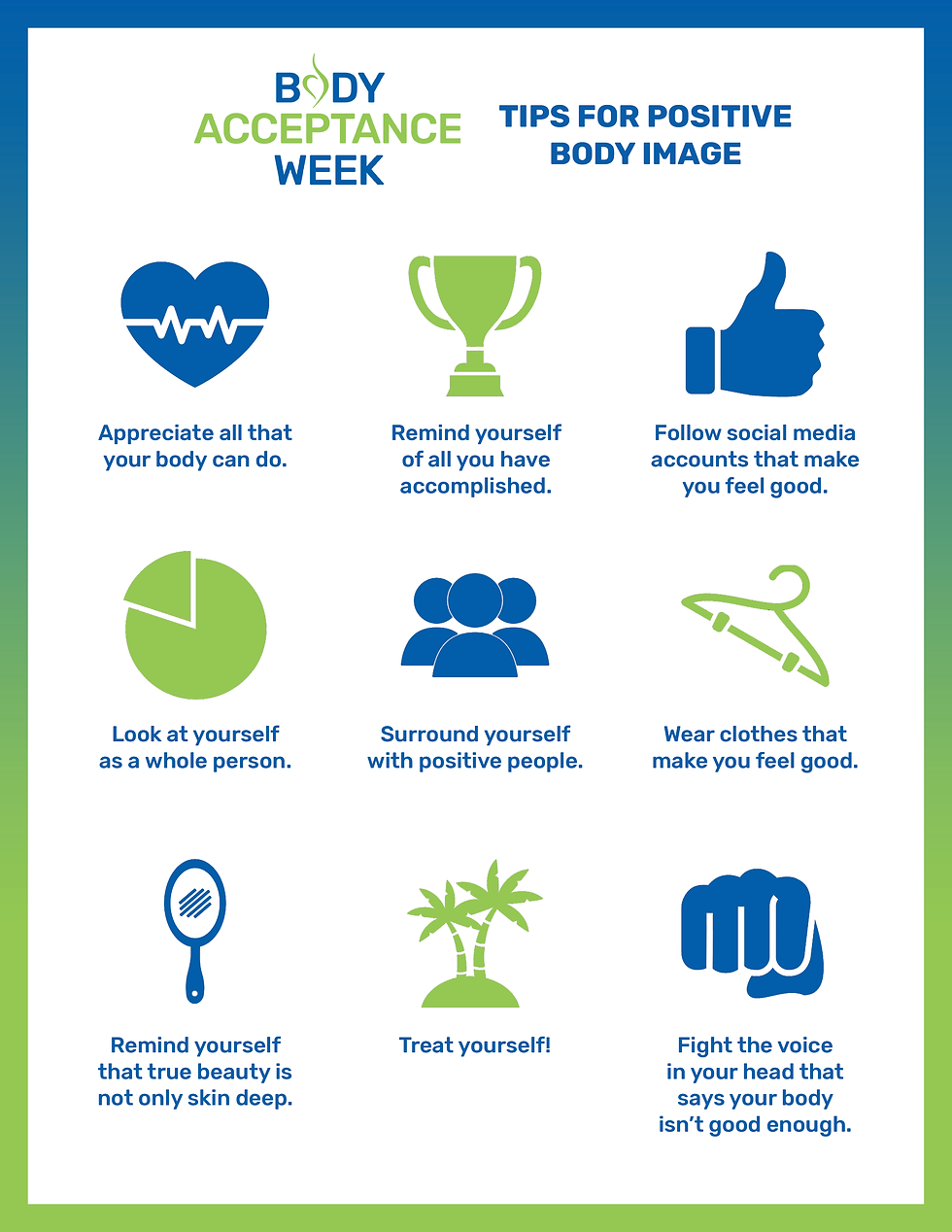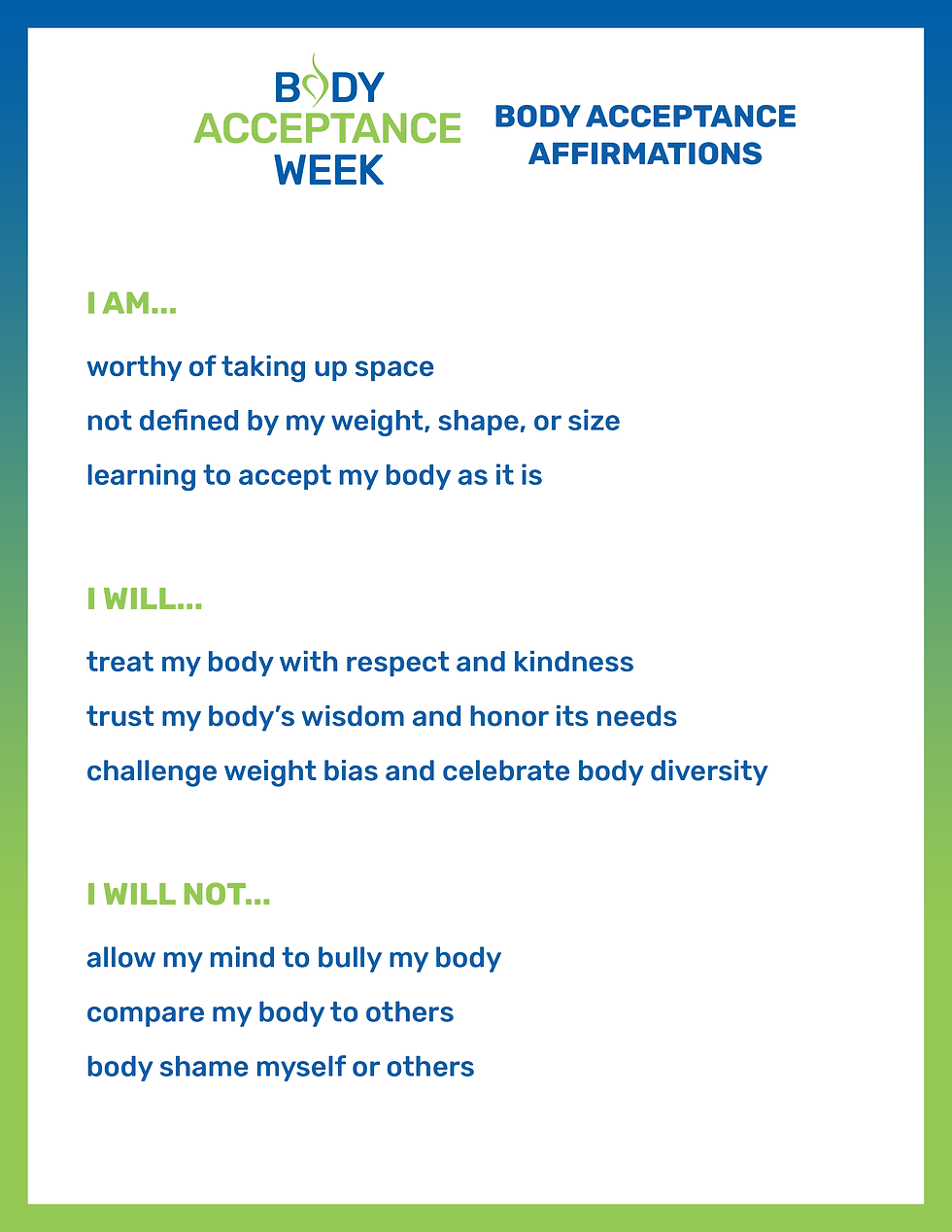Body Acceptance Week
- Samantha Erin
- Oct 12, 2022
- 2 min read
Updated: May 15, 2023
Body Acceptance Week
(October 10-16 2022)
is an exciting, new initiative promoting body acceptance—including body positivity, body neutrality, and body liberation—for all!

Fostering Positive Body Acceptance
The first step in educating our children and fostering a positive sense of self and body image begins in the home. We encourage parents to first assess their own views of themselves and thoughts on their own body image. It’s important to recognize the language that we use around food, weight, and appearance. One way is to focus on the function of our bodies and how food is a source of energy and strength, not only of our physical self, but of our emotional selves.
One example is to ask your child/children what they like about their body and why.
“I like my arms because they are long and they connect to my hands, and my hands help me hold markers so I can color.”
Body positivity and a positive body image should be more about health and wellness than weight and appearance—and it is important kids know that.

Discussing Nutrition
Discussions about "healthy" nutrition as well as regular physical activity is important. I think it’s important not to label food as good or bad; rather, let them know that certain choices are better for growing, strength, and concentration.
Managing Emotions & Struggles
It’s also vital that decision-making and stress management skills are properly modeled and encouraged. Children’s concerns and the struggles they face need to be heard and validated, not only in the home, but in their schools. Many schools are beginning to offer life skills, stress management, and self-esteem programs, which are incredibly helpful in building self-assurance.
Correct Misinformation
A child's exposure to media and unrealistic beauty standards is unavoidable, especially in the age of social media. But it's important to check in and correct misinformation about food, exercise, their body, and other people. Let your kids know that people are not to be judged by their weight, whether they be over- or underweight just as they shouldn't be judged for having physical disabilities, race or gender.



















Comments